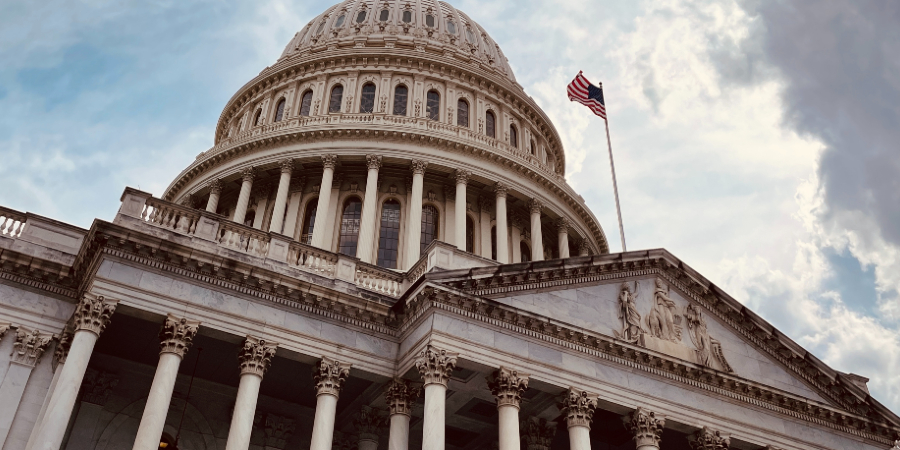Suggested Search
What’s happening in markets, particularly in the bond market? In this quarterly update, CFS Chief Investment Officer, Jonathan Armitage is joined by Head of Investments, Al Clark, where they unpack the latest global developments, plus insights from Jonathan’s recent visit to the US and Europe.
Hello and welcome to the CFS Quarterly Market Update.
So Al, there's been a lot of volatility in markets and particularly in the bond market. What's been going on?
It's been all about bonds. So the bond vigilantes are back. 3 key things have happened in the quarter. So the first is that impending recession that we're all so sure about has been pushed further out. So the labour market's been strong, wages have been strong.
That's led to the second key thing, which is the Fed will not be riding to the rescue. They've decided that rates will stay higher for longer and the market is now accepting that.
And the third is there's now a renewed focus on issuance. So the amount of bonds that the US government need to issue within the next few years is really extreme, and that's making the whole market quite nervous. So bond rates have risen significantly over the September quarter.
We've talked in the past about inflation volatility. Is that still the case?
So the most recent inflation numbers would suggest, yes. The US CPI for September had some issues within it, which suggests that there's inflation volatility still there. Australia’s monthly CPI surprised to the upside and then the UK last week actually also surprised on the upside. So there's been a few numbers that would suggest there is.
The other latent risk we have with all this is energy prices. They were already going up. The conflict between Israel and Hamas, if it does escalate and brings in Iran, has the potential to significantly destabilise energy prices. So it feels like inflation volatility is here to stay for a while.
Yeah, I think that's right.
We mentioned US debt issuance earlier. Do you want to go into some detail about why that's important?
Yeah, so the US Treasury needs to issue a trillion dollars’ worth of debt in the next 18 months to refinance its outstanding debt. And so the cost of servicing that debt is rising significantly and this is bringing about significant discussions about the fiscal deficit.
This is also feeding through into the political sphere because at the moment there is no speaker in the US House of Representatives and it's all to do with the argument about how big the US deficit will be.
So if we put all that together, interest rates at the long end moving up is now creating a lot of volatility, and that’s because a number of assets are actually priced off the longer end of the yield curve, so the longer dated bonds. So we're seeing long duration assets like property, infrastructure, growth equities, all behaving and dislocating to a degree, as this really sharp rise in interest rates creates this extra volatility.
So Johnny, you've just returned from a round the world in 15 days trip. Any insights you'd like to share?
Al, I think there were 3 things that came out of the series of meetings that we had.
The first one is that there's now a consensus view that the US will go into recession sometime in the first six months of next year.
Alongside that, and the second thing, is that there is, if there is one thing that's consensual in the US around the political dimension, it's a focus on de-sinofication. So removing Chinese influence from the US economy. That's going to get more airtime as we move into a US election year in 2024. And it will be further amplified because there are presidential elections in Taiwan in January next year.
The final thing is that I think in Europe, growth has probably surprised on the upside compared to where feelings were six months ago. We’re moving into a northern hemisphere winter. As we talked about earlier, there's going to be a renewed focus on energy prices. And as we move into the latter part of this year and early next year, there's a real risk that economic growth in Europe slows down dramatically.
So we're just facing into a number of risks. Some we sort of know about, some we don't know about. How are we going to manage our way through that, do you think?
The way that we're going to be focusing on managing portfolios at CFS is emphasising diversification. There is going to be a focus on active management, both of the opportunities, but also actively managing the risk within our portfolios as well.
Thanks very much for watching CFS Market Insights. See you next month.
What’s next?
We're here to help
Get in touch
For adviser services contact us 8:30am - 6pm (Sydney time) Monday to Friday.
FirstTech: 9am - 5:30pm Monday to Friday.
Adviser use only
• This document provides general information for the adviser only and is not to be handed to any investor. Information on this webpage is provided by Avanteos Investments Limited ABN 20 096 259 979, AFSL 245531 (AIL) and Colonial First State Investments Limited ABN 98 002 348 352, AFSL 232468 (CFSIL). It may include general advice but does not consider anyone’s individual objectives, financial situation, needs or tax circumstances. You should read the Financial Services Guide (FSG) before making any recommendations to a client. This information is based on current requirements and laws as at the date of publication. Published as at 26 June 2023.


